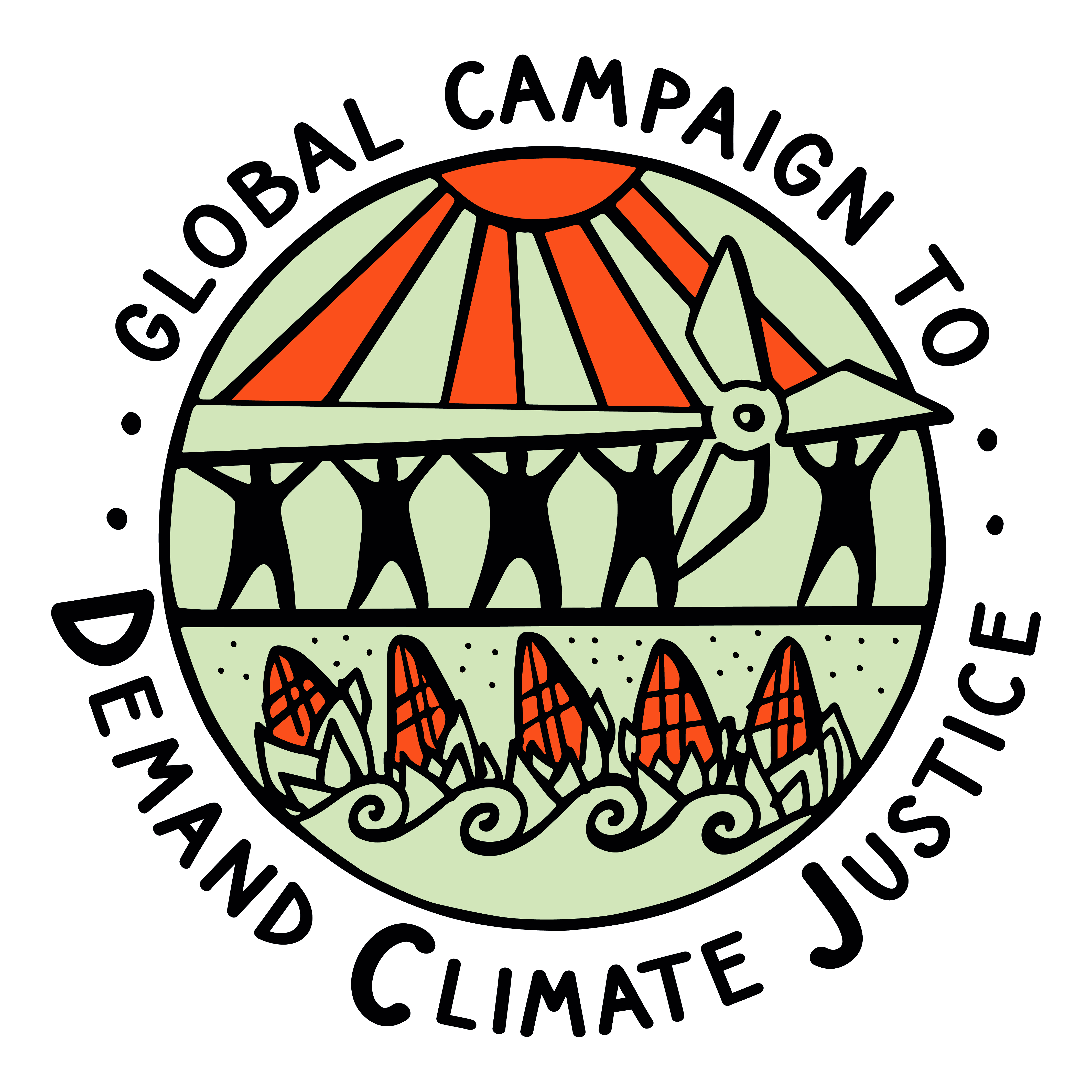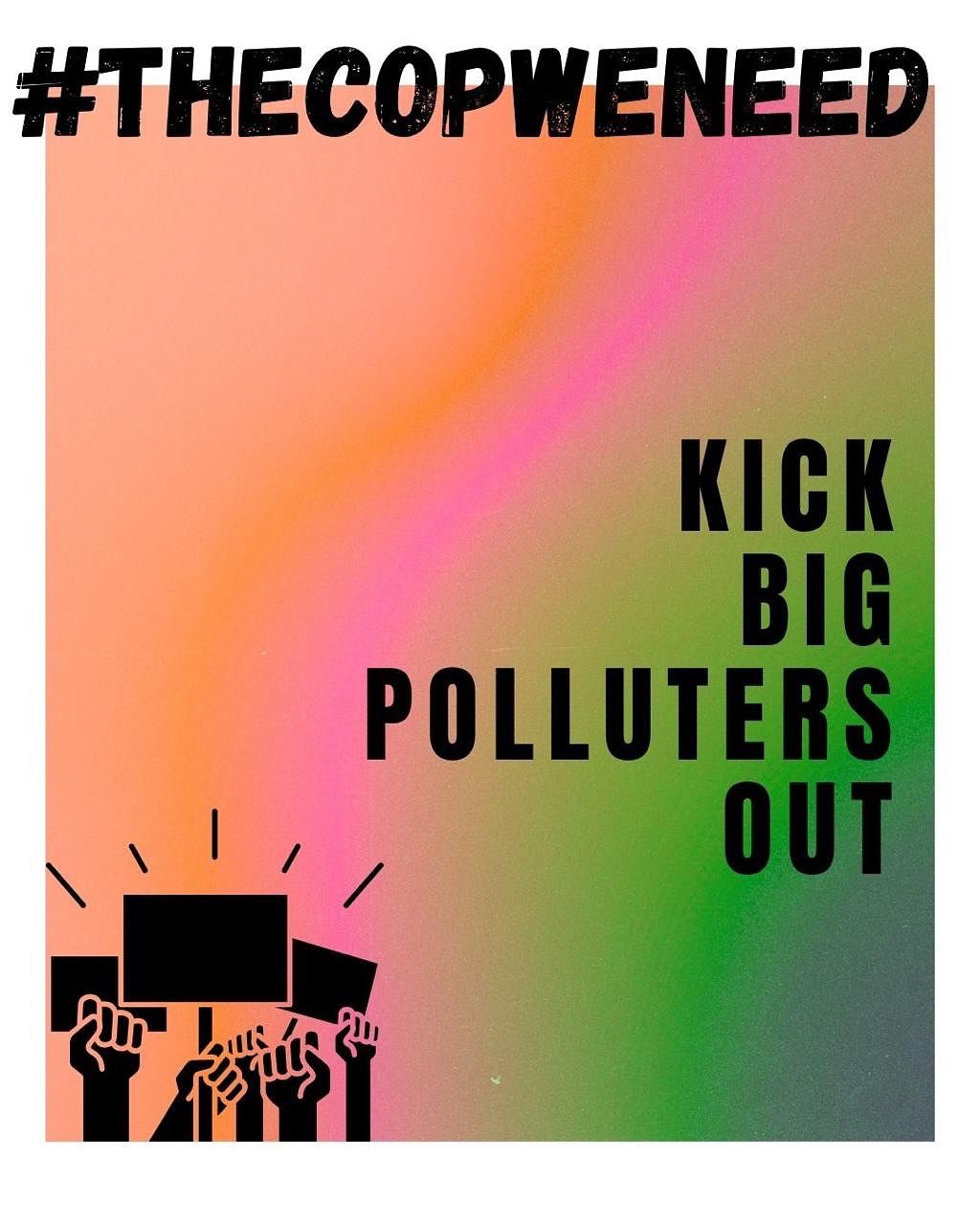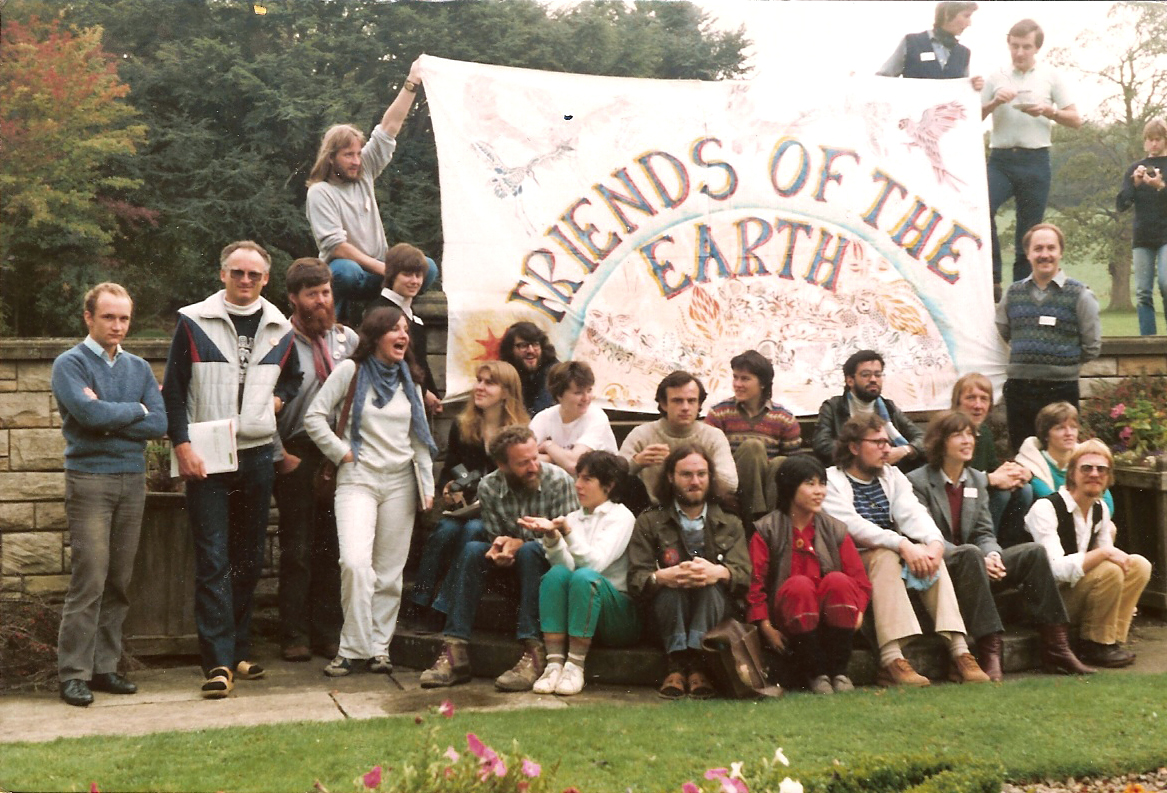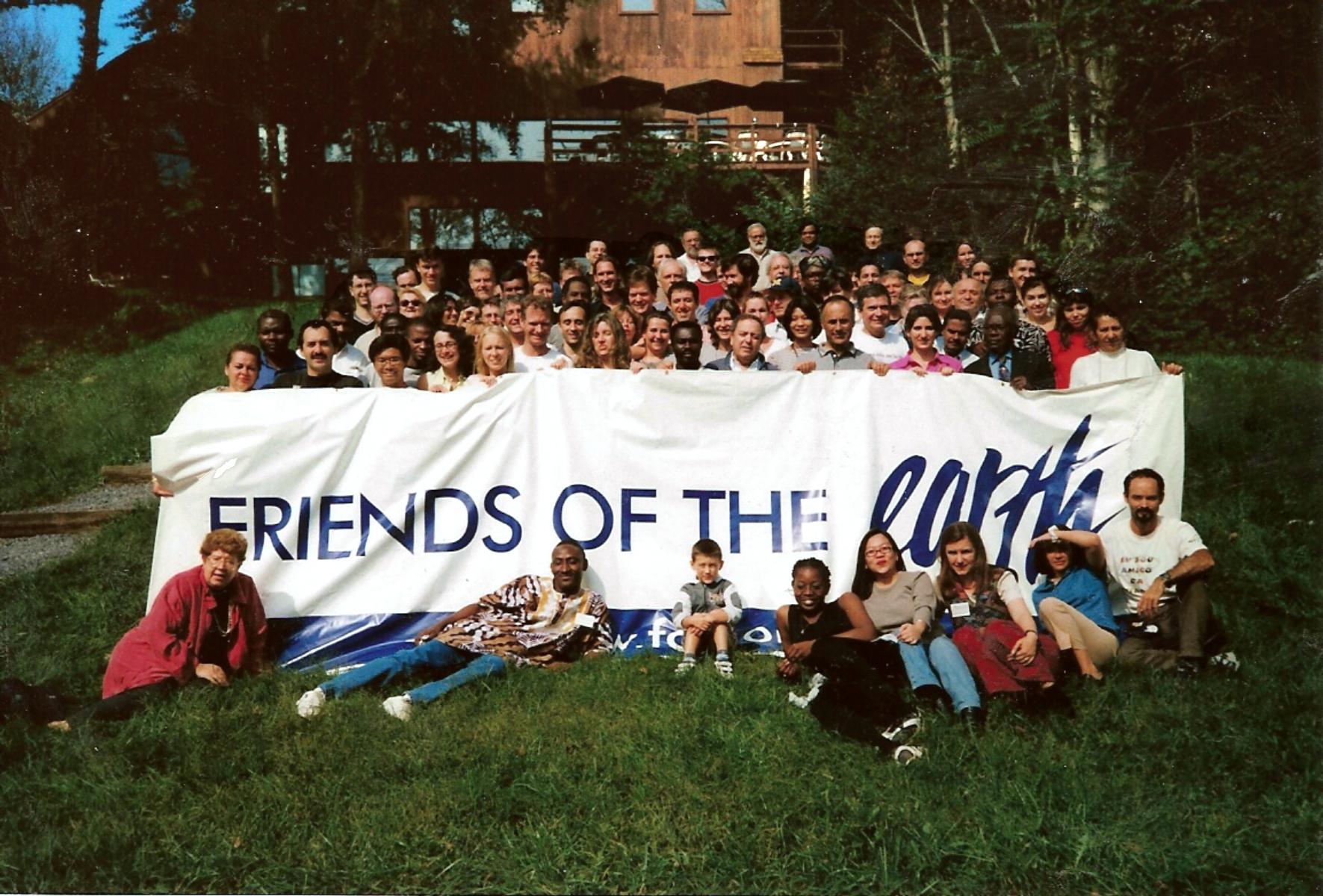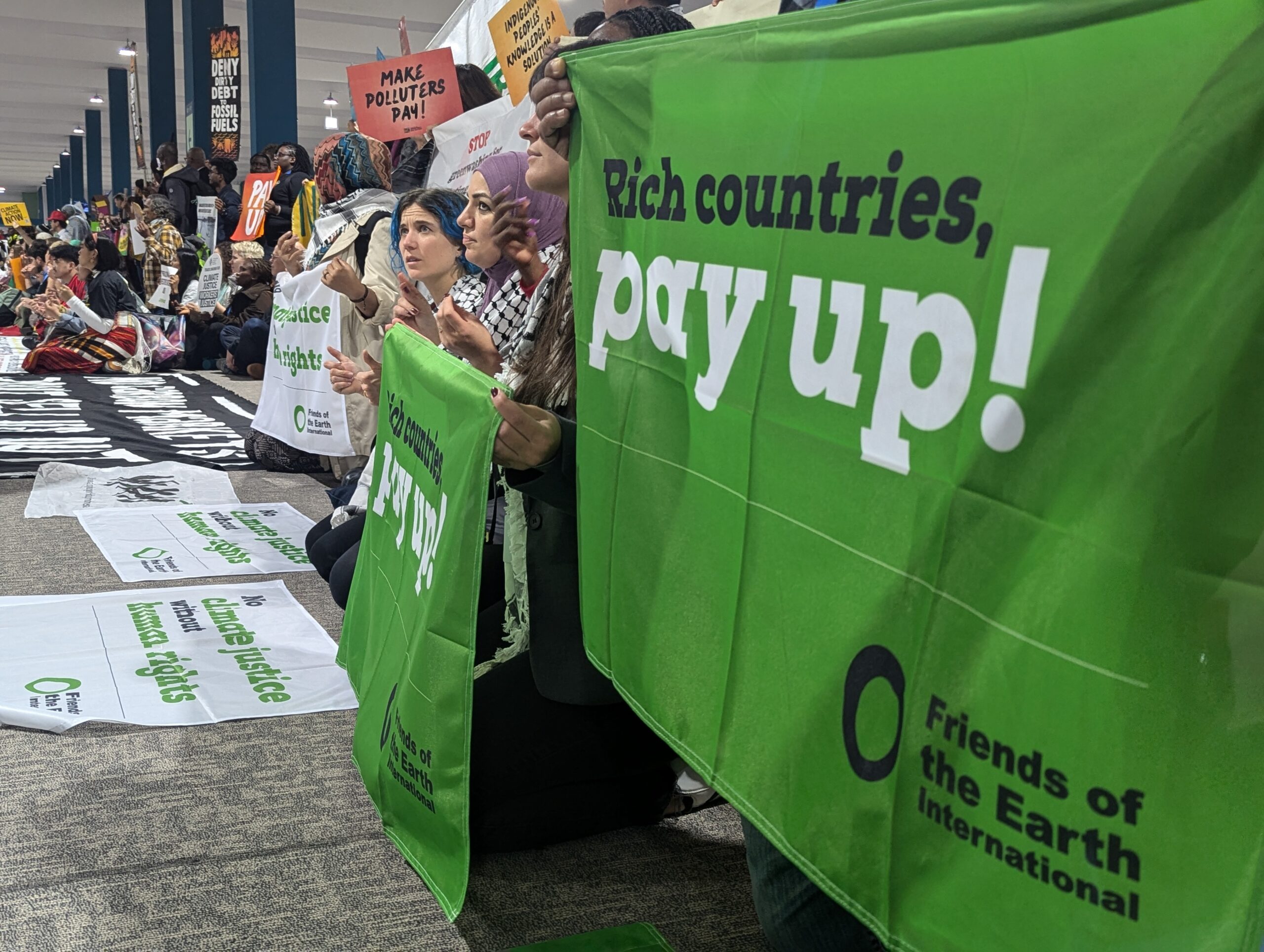Press Release: Food justice activists at COP30 link corporate capture to backtracking of progress, demand ‘Food for People, Not for Profit!’
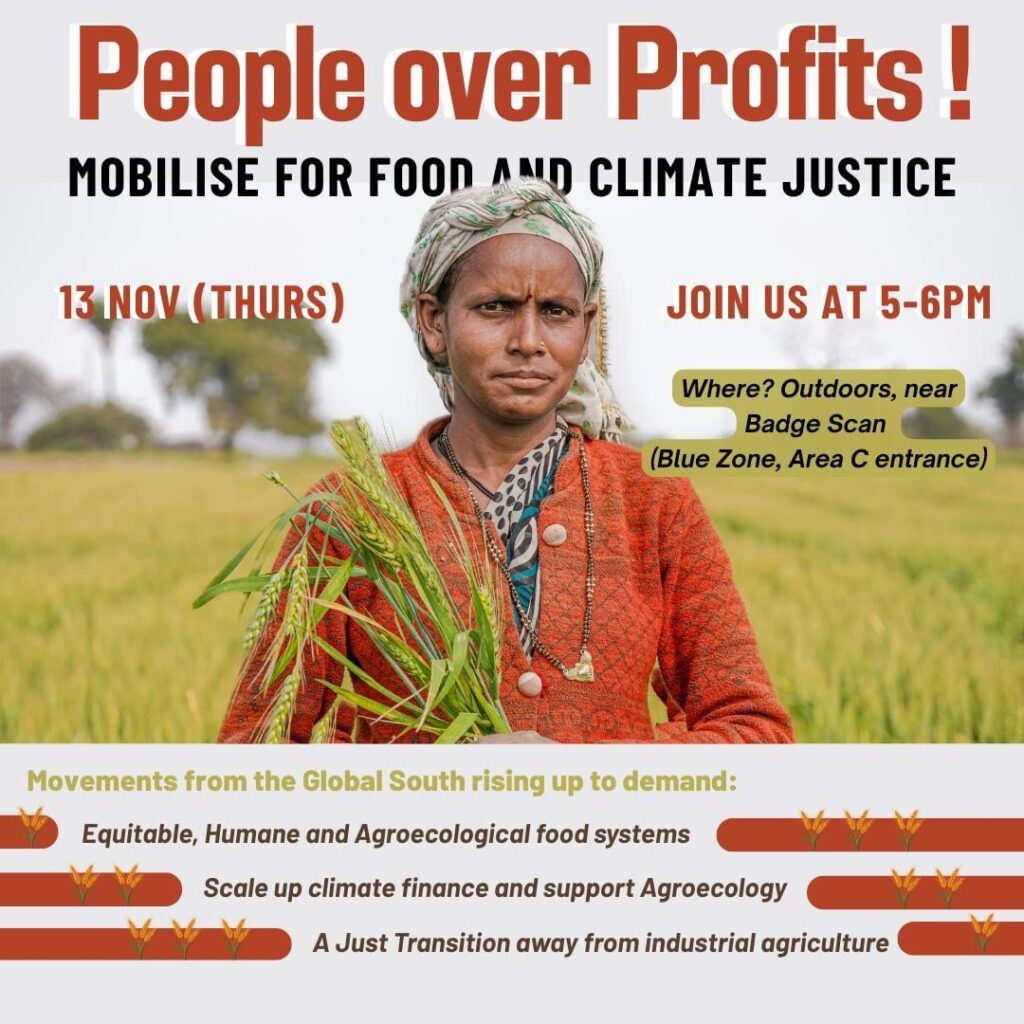
FOR IMMEDIATE RELEASE: Thursday, November 13, 2025
Photos download at this link. (Credit: Artivist Network, Bianka Csenki)
Belém, Brazil – Today, climate campaigners at COP30 made their voices loud in the Blue Zone, to bring awareness to the contradictions of the climate and food crises and show that solutions exist.
Official negotiations at the ‘Sharm el-Sheikh Joint Work on Implementation of Climate Action on Agriculture and Food Security’ have been going backwards, only now focusing on workshops, submissions, and annual reports. With one year left before the Joint Work officially ends in 2026, climate campaigners came together today to call out the lack of progress. As with many other negotiating rooms, the Sharm el-Sheikh Joint Work also remains gridlocked on the topic of climate finance, effectively rendering action in food systems unfunded and unimplemented.
Brazilian President Lula’s Plano Safra recently included R$516 billion in subsidies to big agribusiness in the country, and included JBS, the biggest meat producer in the world, on their VIP list for the COP30 Blue Zone. This year, in addition to the Blue and Green Zones of the COP, a separate “Agrizone” is hosted by Embrapa, Brazil’s public agriculture research body, and sponsored by both Nestlé and pesticide firm Bayer.
The campaigners, as part of the Global Campaign to Demand Climate Justice, condemned the move, emphasizing the danger of allowing Big Agriculture to influence world leaders and climate negotiators.
About the Organizers
This action is organized by members and allies of the Global Campaign to Demand Climate Justice.
Following the mobilization, photos will be available to download at this link.
QUOTES:
Elodie Guillon, Head of Civil Society and Engagement, World Animal Protection: “Big agribusiness is driving deforestation, animal cruelty, and emissions, yet they have a VIP seat at the COP30 table. We’re here today because climate leadership means standing with communities, animals and the environment, not with the corporations causing their suffering. Companies like JBS are not serious about a humane, sustainable, and equitable future. The future is in fair farms, not factory farms.”
Pang Delgra, Asian Peoples’ Movement on Debt and Development – Global Campaign to Demand Climate Justice, Food & Agriculture WG Co-Coordinator: “Food, land, and water are human rights, not commodities to be traded for the profits of agribusiness and their allies in governments. We assert this right in every space we can, because we know they won’t cede it to us. Here at the UNFCCC, the Sharm el-Sheik Joint Work on Climate Action in Agriculture has failed us because of Parties’ lack of political will to side with those most vulnerable to the climate crisis. Instead, they pander to corporates, jumping on every opportunity they can to earn a profit.”
Isis Álvarez, Brighter Green-Just Food Transition Network: “Why don’t we call industrial agriculture what it truly is? A major polluter, a system that causes hunger, land and water grabbing, and cannot be sustainable. Including distractions such as sustainable intensification of meat production, digitalization of agriculture, or climate-smart practices only exacerbates the threats to life, as these systems are designed to produce profit, not food.”
Marie Cosquer, Action against Hunger – Climate Action Network Agriculture Co-coordinator: “Multinational corporations of the food and agriculture industry keep undermining the multilateral processes of the UNFCCC by pushing false solutions such as GMOs or pesticides. Climate policies must align with a Just Transition for food systems. That means upholding the right to food for all and protecting the rights of small-scale producers who actually feed the world.”
Camila Mikie Nakaharada, Climate Manager, World Animal Protection Brazil: “Corporate capture of Brazil’s food systems is fueling climate chaos. The food system in Brazil alone accounts for 71% of the country’s greenhouse gas emissions, driven by industrial livestock production that causes deforestation, animal suffering, and monocultures with pesticides. Animals pay the highest price — farmed animals confined in cruel conditions, and wildlife losing habitats to fires and floods. Climate leadership must break free from agribusiness influence and invest in agroecology, ecosystem restoration, and justice for all life.”
Camila Mikie Nakaharada, Gerente de Clima, Proteção Animal Mundial: POR: “A captura corporativa dos sistemas alimentares do Brasil está abastecendo o caos climático. Os sistemas alimentares no Brasil são responsáveis por 71% das emissões de gases de efeito estufa do país, impulsionados pela produção industrial de animais, o que causa desmatamento, sofrimento animal e monoculturas com veneno e transgênicos. Os animais pagam o preço mais alto, os de fazenda confinados em condições cruéis, e a vida selvagem perdendo habitats devido a incêndios e enchentes. A liderança climática deve se libertar da influência do agronegócio e investir em agroecologia, restauração de ecossistemas e justiça para toda a forma de vida.”
Tyrone Scott, War on Want (UK): “While fossil fuel and agribusiness giants come to COP30 with false ‘nature-based’ solutions and profit-driven agendas, communities suffer and ecosystems collapse. True just transitions must be led by smallholder farmers, Indigenous peoples and workers, not by the corporations that created this crisis in the first place. Only Food Sovereignty, rooted in peasant agroecology and popular agrarian reforms, offers the real path towards justice in our food systems and to confronting the interlinked crises of inequality, climate breakdown and biodiversity loss”.
Adèle Galiègue, AgroParisTech & Les Agros à la COP, YOUNGO Food & Agriculture (France): “Giant agribusinesses are consciously sacrificing lives for profit, destroying our lands, poisoning our waters and calling it “sustainable.” But our lives and our environment are not commodities. Industrial agriculture drives over a third of global emissions while deepening hunger and inequality. We will not stay silent in the face of this massive poisoning. We demand agrifood systems rooted in care and justice. Food to nourish people, not profit”.
Melody Gold Barry-Yobo, Ogoni Farmer Agroecology Movement: “Access to food, land and water is a fundamental human rights and shouldn’t be controlled by multinational corporations who prioritizes profit over people and planet. Farmers deserve food security and sovereignty especially in oil polluted regions like the Niger Delta Region of Nigeria where farmers are trying to heal their soils while feeding the people. Agroecology is the solution to exploitation by large industrial agricultural corporations, farmers can decide what we have on our plate, healthy, organic and nutritional meals that nourishes the body. Farmers are resisting the resumption of Oil exploration activities in Ogoni communities as oil pollutes their land and water, leading to food insecurity and poverty.”
Dee Woods, Director and Food Justice Policy Coordinator Landworkers Alliance (UK): “From the margins of the Global North we are seeding justice: Agroecology is our act of return, the just transition, our method of repair, and the right to food our declaration that no one can own the earth that feeds us. Across borders and tongues we rise through agroecology—the practice that feeds without domination. The just transition is our shared horizon, the right to food our common oath: to protect each other, restore the earth, and remember that nourishment is a universal language of freedom.”
Nona Chai, Just Transition Alliance: “As an environmental justice organization with an early and historic role in developing just transition by bringing frontline workers and fenceline communities together, the Just Transition Alliance reminds the world that a true just transition involves both workers and communities. We must respect the Indigenous Principles of Just Transition and promote food sovereignty and Indigenous traditional foods as a form of decolonization, and we must support peasant agroecology for a just transition, in the words of our allies at La Via Campesina. Most critically, we need to move away from fossil fuels, which are at the root of industrial agriculture, to create food systems that provide for all.”
Gerry Arances, Center for Energy, Ecology, and Development (Philippines): “Across the world, exploitative practices are harming our coasts and seas and the communities that rely on them for their food and livelihood. This is true in the Philippines’ Verde Island Passage and Southeast Asia’s Coral Triangle, where a continuing buildout of fossil gas brings destruction to highly biodiverse waters that have been dubbed the ‘Amazon of the ocean’. Fisherfolk and coastal communities are doubly burdened with displacement and pressure from policies that give preference to commercial fishing and other destructive businesses. This state of affairs needs to end. We fight for a future where food and energy systems protect people and biodiversity, not profits.”
Contacts:
Hannah Smart | World Animal Protection | [email protected] | +61 0434 269 048
Esthappen S | Global Campaign to Demand Climate Justice | [email protected]
Isabel | Asian Peoples’ Movement on Debt and Development | [email protected] | +63 926 734 5712
